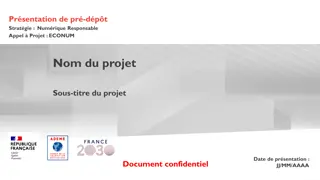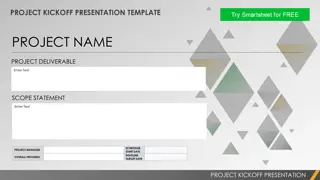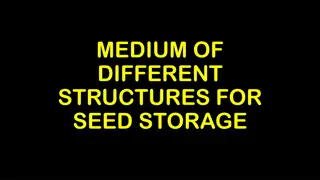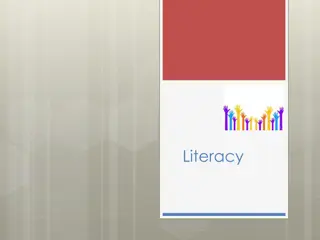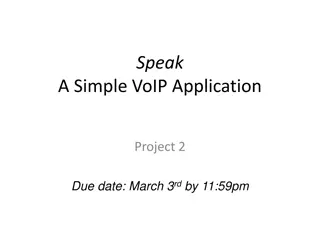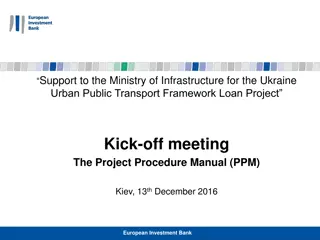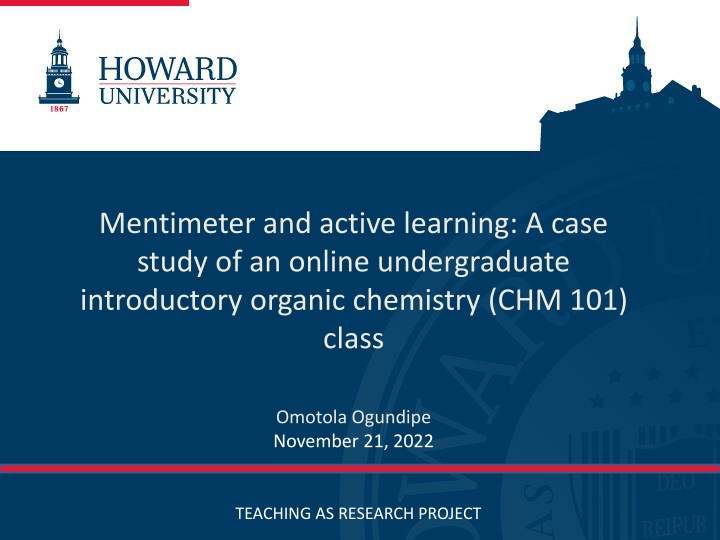
Utilizing Mentimeter for Engaging Online Organic Chemistry Classes
Explore the effectiveness of using Mentimeter in online organic chemistry courses through active learning methods. Discover how this interactive tool enhances student engagement, provides real-time feedback, and supports remote teaching of complex topics like organic chemistry.
Download Presentation

Please find below an Image/Link to download the presentation.
The content on the website is provided AS IS for your information and personal use only. It may not be sold, licensed, or shared on other websites without obtaining consent from the author. If you encounter any issues during the download, it is possible that the publisher has removed the file from their server.
You are allowed to download the files provided on this website for personal or commercial use, subject to the condition that they are used lawfully. All files are the property of their respective owners.
The content on the website is provided AS IS for your information and personal use only. It may not be sold, licensed, or shared on other websites without obtaining consent from the author.
E N D
Presentation Transcript
Mentimeter and active learning: A case study of an online undergraduate introductory organic chemistry (CHM 101) class Omotola Ogundipe November 21, 2022 TEACHING AS RESEARCH PROJECT
2 Outline Introduction Mentimeter and how it is used Mentimeter features and their applications Uses of Mentimeter Research question Method References
3 Introduction Organic chemistry is the branch of chemistry that studies the structure, properties, composition, reactions, and preparation of carbon-containing compounds pharmaceuticals, clothing, petrochemicals, plastics, detergent, agrochemicals, paints, cosmetics, and food. It is traditionally perceived by students as difficult because it entails the memorization of a lot of chemical reactions, names and rules. Teaching organic chemistry remotely is also challenging because of the abstract nature of the course.
4 Introduction In a study by Salame et al. (2019), it was reported that most organic chemistry students prefer a teaching method that is short but provides many explanations. While this may not be feasible with traditional class-room lecturing, active engagement of the students during class time will provide prompt learning feedback to the teacher and also help the students to learn better. Mentimeter is a free online audience response system that allows educators to engage their students, promote students participation in active learning process and allows student to provide regular feedback to the teachers (Pichardo et al., 2021). The use of Mentimeter in the remote teaching of CHM 101 will help improve students engagement and their learning outcomes.
5 Mentimeter and how it is used Teacher logs in at www.mentimeter.com and create an interactive presentation. Students visit www.menti.com and use a unique pin code or scan a QR code provided by the teacher to access the presentation. The students respond to the questions, and the results are displayed on the screen in real time, while the number of people who have responded appears in the lower right corner. Results are downloadable in PDF or Excel format. (Pichardo et al., 2021; Mayhew et al., 2020)
6 Mentimeter features and their applications Multiple choice questions (with or without image) Formative assessment; enhancing student engagement; active learning Image choice Visual learning aid Word cloud Emphasize the most common words submitted by the students in real-time Scales Evaluating the teaching activity with the learning environment Questions from the audience Evaluate the lecture Quick slide Lecture presentation Space quiz Engage students in fun and learning-intense competition Meeting energizer Test and develop students knowledge about a new topic and reinforce students' learning (Mohin et al., 2022)
7 Mentimeter features and their applications Meeting energizer class activity in CHM 101 class teach the concept of organic synthetic reactions
8 Uses of Mentimeter Mentimeter increases student engagement and inclusion. It provides quick feedback on learning outcomes. Useful for student-led teaching where the session is driven by the answers of the students to the in-class questions. In a study by Pichardo et al., 2021, participants reported the following about Mentimeter It helps to maintain attention, plus it is an incentive that forces you to process what the teacher is explaining in order to respond, and it is fun. It is usually the information we remember most at the end of the term It is a break in the teacher s presentation that allows us to take a second, think and remember the class better afterwards It is a different and entertaining method. Either for the competition or to get out of the routine/basic class (textbook and listening to lectures) .
9 Research question Will the use of Mentimeter in the remote teaching of CHM 101 improve students engagement and assessment grades?
10 Method The class capacity for CHM 101 is 35 and it comprises 10 modules covering topics such as functional groups, organic reactions and isomers. Modules 4 to 7 comprise organic reactions I and II. Students will be assessed on Organic Reactions I at the end of module 5. Mentimeter features such as meeting energizer and quizzes will be incorporated in the course for modules 6 and 7, before assessing the students on Organic Reactions II. The students mean scores in Organic Reactions I and II will be compared using the paired t-test with the aid of SPSS software. Mean difference will be considered statistically significant at p < 0.05. Quizzes charts and leaderboards provided on mentimeter will be used to evaluate students engagement and the descriptive statistics will be reported as frequency distribution plots.
11 References Cormier, C., & Voisard, B. (2017). Flipped classroom in organic chemistry has significant effect on students grades. Frontiers in ICT, 4 (JAN), 1 15. Crucho, C. I., Av , J., Diniz, A. M., & Gomes, M. J. (2020). Challenges in teaching organic chemistry remotely. Journal of Chemical Education, 97(9), 3211-3216. Mayhew, E., Davies, M., Millmore, A., Thompson, L., & Pena Bizama, A. (2020). The impact of audience response platform Mentimeter on the student and staff learning experience. Research in Learning Technology, 28 (0). Mohin, M., Kunzwa, L., & Patel, S. (2022). Using Mentimeter to enhance learning and teaching in a large class. International Journal of Educational Policy Research and Review, Vol.9 (2): 48-57 Musliha, S., & Purnawarman, P. (2020, December). Using Mentimeter for Eliciting the Students Responses in Formative Assessment Practice. In 1st International Conference on Information Technology and Education (ICITE 2020) (pp. 318-325). Atlantis Press. Pichardo, J. I., L pez-Medina, E. F., Mancha-C ceres, O., Gonz lez-Enr quez, I., Hern ndez-Meli n, A., Bl zquez-Rodr guez, M., ... & Borr s-Gen , O. (2021). Students and teachers using mentimeter: Technological innovation to face the challenges of the covid-19 pandemic and post-pandemic in higher education. Education Sciences, 11(11), 667. Salame, I. I., Patel, S., & Suleman, S. (2019). Examining some of the students challenges in learning organic chemistry. International Journal of Chemistry Education Research, 6-14.


